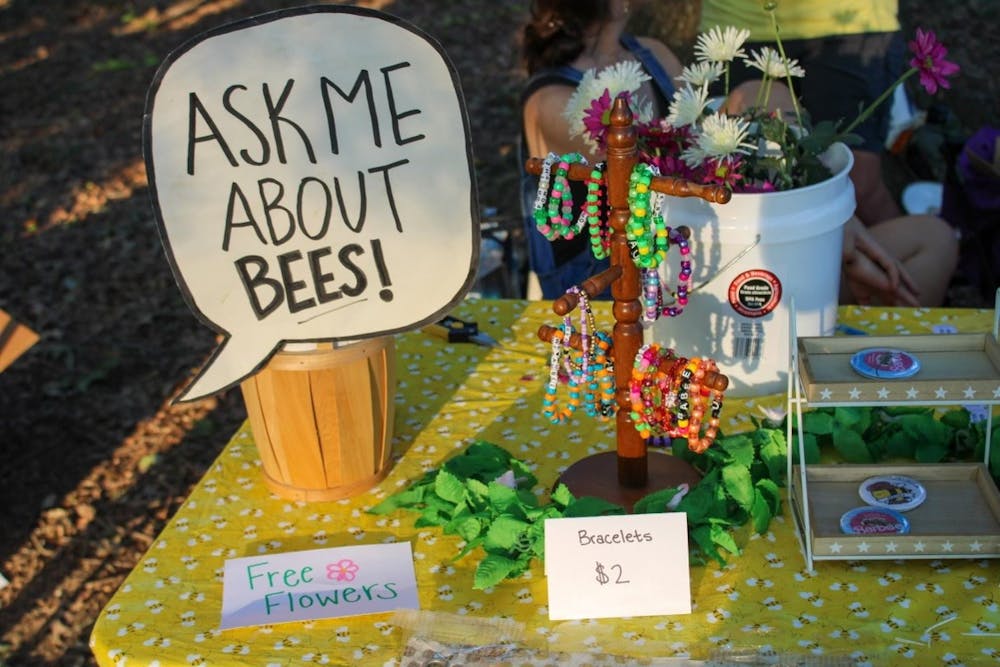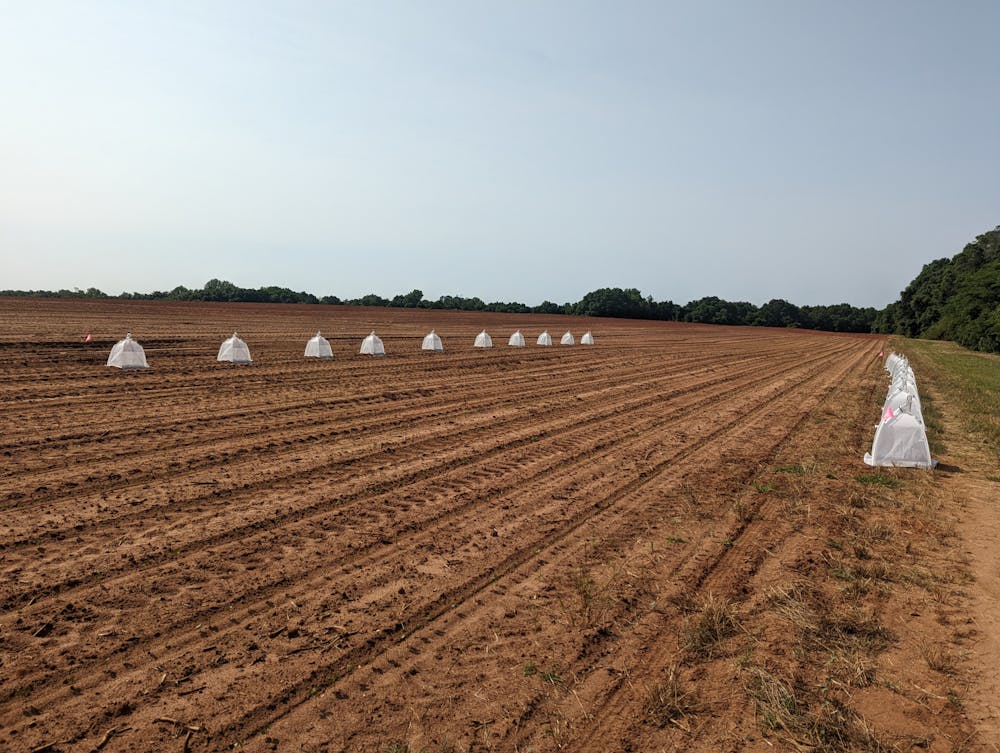Auburn University’s department of entomology and plant pathology graduate students are researching bees, offering student researchers the option to study native or honey bees.
Student researchers can study native bees or honeybees and how certain circumstances in their environment affect those bees.
Auburn student Anthony Cuminale studies bees and the effect their environment has on them. Auburn houses a bee lab that collaborates with a club on campus called For the Bees.
Cuminale is a graduate student working towards his master of science in entomology. He studies native bees and how agroecosystems affect them.
“I’m trying to understand how agriculture affects these bee populations through the manipulations of the soil,” Cuminale said.
His research focuses on native bees, and how soil treatment affects them. About 75% of bees are ground nesters and agriculture in certain areas causes them to disappear.
“These bees, called central place foragers, build these brown nests, where they collect pollen and bring the pollen back. They have certain limitations to how far they can fly from their nest, so they can’t pollenate flowers,” Cuminale said. “Three quarters of bees are ground nesting, so when you think about how much land goes to agriculture, those agriculture fields are becoming a culprit in bee disappearances.”
Cuminale has been researching in the Auburn Bee Lab since 2021, and has spends nine months out of the year doing experiments with the bees. He claims that the work isn’t done and there’s always something new to be learned about these bees.
“We were collecting bees out of the soil, not harming them, but doing this weekly. We got 120 of them every week, almost 5,000 in two years. We really don’t understand what bees are attracted to for these nesting sites, they’re aggregating around some environmental factors that they like; it’s different between species and genera,” Cuminale said.
The Auburn Bee Lab, also known as AU-Bees, produces honey from their bees and sells it to help student research. For the Bees club at Auburn University promotes education on the importance of bees. Skyler Demi, junior in agriculture minoring in entomology, is a member of For the Bees.
For the Bees visits local schools and teaches students about their bees. The club also has one concourse day per month to sell bracelets to raise funding for the education of bees. They also sell honey from AU-Bees to raise funding for their research.

For the Bees club tables on the Haley Concourse to spread awareness and raise money that goes towards bees and bee research.
“In the past, we have done events with elementary students. We’ve brought veils that beekeepers wear, honeycombs for kids to look at and drone bees – male bees that don’t sting – for them to hold,” Demi said. “I think that it would be really cool you know, as an eight-year-old to hold a bee.”
The Bee Lab also promotes saving bees, and their research at university events like the Sustainability Picnic, Earth Day Extravaganza and the Welcome Back Picnic for the College of Agriculture.
“We want to get in touch with other students,” Demi said. “We really try to educate them on what we learn when we visit the Bee Lab. It’s like we’re the bridge between the lab and students.”
The Bee Lab also accepts volunteers, in collaboration with the Auburn University department of agriculture, which accepts donations that go towards student research, honey production and sales.
Do you like this story? The Plainsman doesn't accept money from tuition or student fees, and we don't charge a subscription fee. But you can donate to support The Plainsman.

Brychelle Brooks, senior majoring in public and professional writing with a minor in information systems, has been with The Auburn Plainsman since August 2023. She previously served as the Campus Reporter, Opinion Editor and Newsletter Editor. She is currently serving as the Editor-in-Chief.





